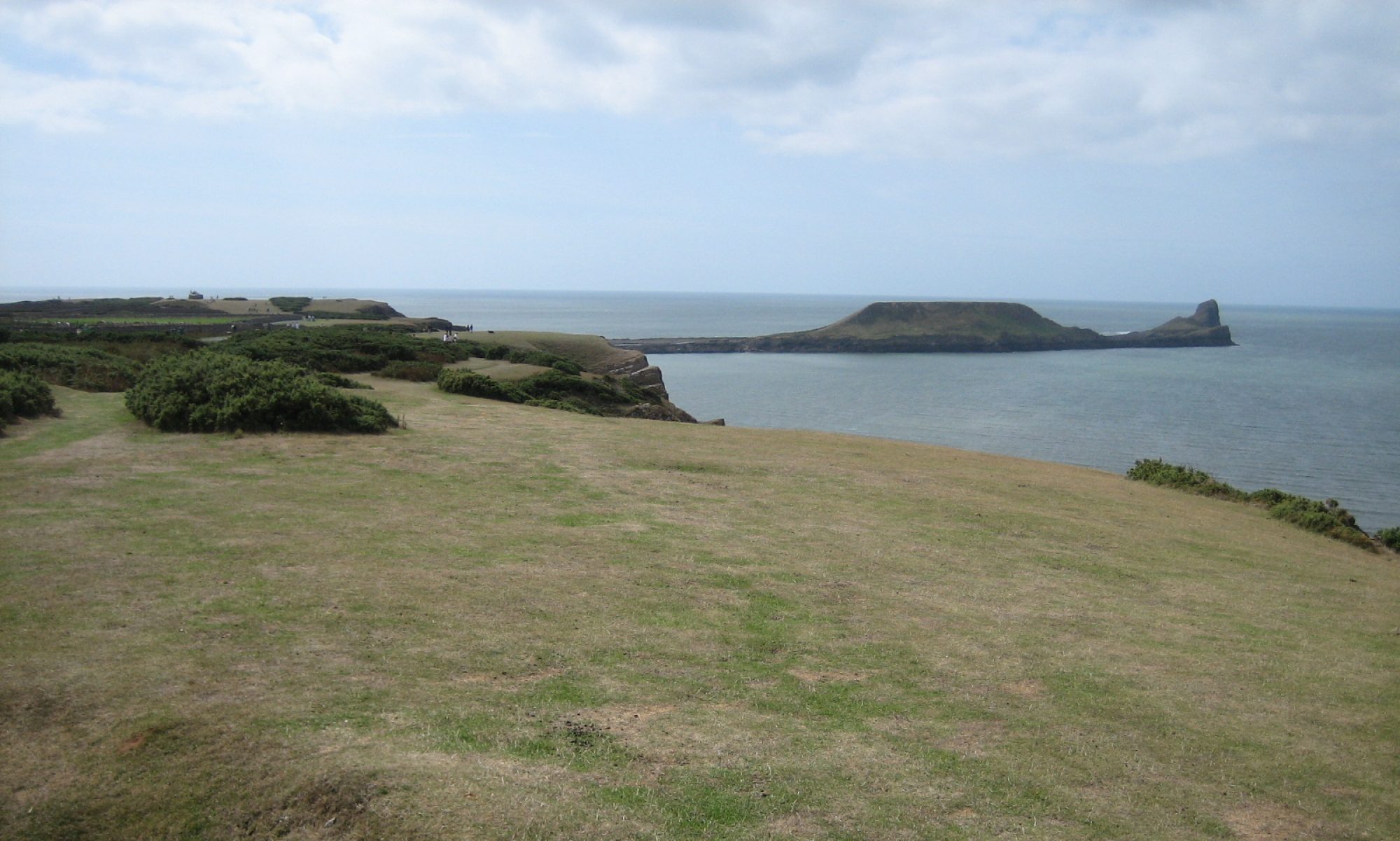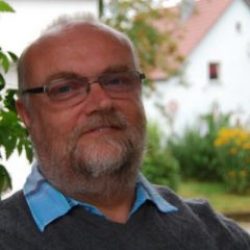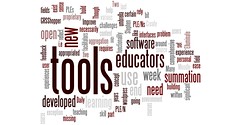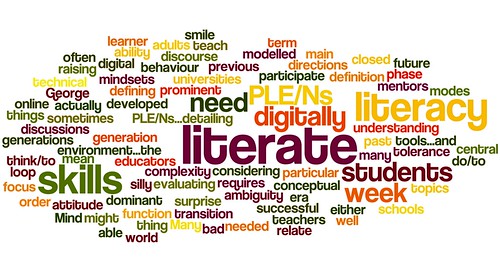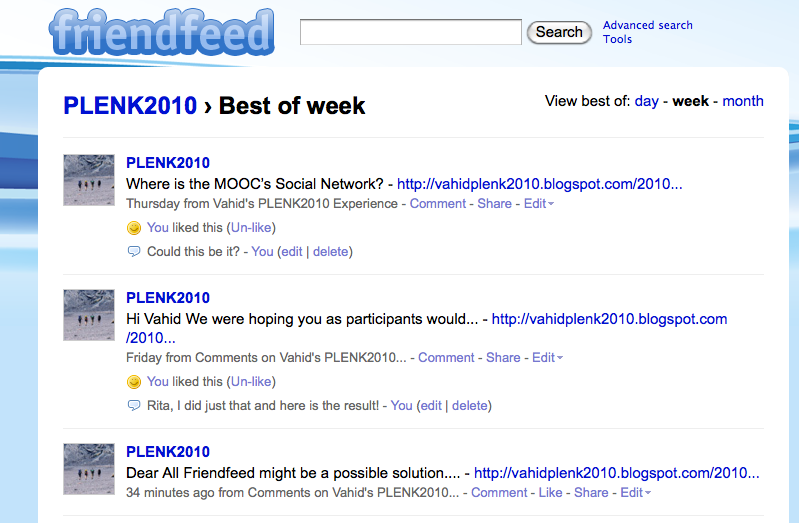On Sunday, I finally found the time to listen to the recording of guest Will Richardson, author of Blogs, Wikis, Podcasts, and Other Powerful Web Tools for Classrooms, from Wednesday’s #PLENK2010 live Elluminate session. In this session, Will gave a short presentation Using PLE’s Successfully and a couple of things came up.
First was a summary of the recommendations on 21st Century* *Literacies from the US National Council of Teachers of English (NCTE) [1]:
- Develop proficiency with the tools of technology
- Build relationships with others to pose and solve problems collaboratively and cross-culturally
- Design and share information for global communities to use for a variety of purposes
- Manage, analyze and synthesize multiple streams of simultaneous information
- Create, critique, analyze, and evaluate multi-media texts
- Attend to the ethical responsibilities required by these complex environments.
This is a pretty sophisticated set of competences that I would struggle to demonstrate. It’s even more challenging, when you consider that these are the aspirations of a professional body for teachers of *high-school age* children! Do we even do this for our undergraduate and postgraduate students? Would I and my colleagues be competent to teach these high-level **digital literacies **[2] to them?
The second theme was a set of principles for creating and successfully using a PLE:
– Pursue your passion.
– Read widely.
– Filter.
– Share.
– Add value.
– Be personal … sometimes.
– Manage/balance.
I can see how these principles might apply to my own PLE, which for me is centred around this and the [Learning Lab blog](http://llcommunity.blogspot.com/). But it’s not quite so obvious how it might apply to our students. Too often, we try to get them to engage with the tools of a PLE by telling them that it’s *good* for them, and we then try to get them to engage with a topic related to a course we are teaching or a topic within a course of *our* choosing, and we try to force them to engage by assigning credit. Would they engage more if they were able to *pursue their passion* while we supported their learning as mentors rather than assessors?
In the discussion, will mentioned the Royal Society for the encouragement of Arts, Manufactures and Commerce (RSA) animation [Changing Education Paradigms](http://comment.rsablogs.org.uk/2010/10/14/rsa-animate-changing-education-paradigms/) which is based on a [speech given to the RSA by Sir Ken Robinson](http://www.thersa.org/events/vision/archive/sir-ken-robinson) [3]. An idea, and its presentation, well worth sharing.
**References**
1. *Definition of 21st Century Literacies*, National Council of Teachers of English (NCTE), February 15, 2008. URL: [http://www.ncte.org/governance/literacies](http://www.ncte.org/governance/literacies).
2. Barbara R. Jones-Kavalier and Suzanne L. Flannigan, “Connecting the Digital Dots: Literacy of the 21st Century”, *Educause Quarterly*, Volume 29, Number 2, 2006. URL: [http://bit.ly/dabAsD](http://bit.ly/dabAsD).
3. Sir Ken Robinson, *Changing Paradigms*, RSA Edge Lecture, 16 June 2008. URL: [http://bit.ly/bMz8FM](http://bit.ly/bMz8FM). video: [http://youtu.be/mCbdS4hSa0s](http://youtu.be/mCbdS4hSa0s).

